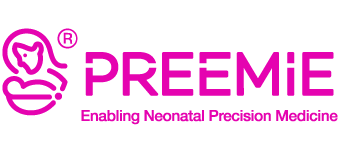When Can My preemie baby Go Home?
Premature birth is defined as a birth that occurs before 37 weeks of pregnancy. Your baby is a preemie if born prematurely, and it may take longer for you to be able to take your preemie home compared to full-term babies. The time frame for a premature baby to go home depends on several factors including their gestational age, weight, and overall health.
Here are the typical milestones that a premature baby needs to reach before they can go home:

- WEIGHT: the preemie baby needs to reach a stable weight, usually around 1.8-2.3 kg so that they can maintain their body temperature and feed on their own.
- TAKE ALL FEEDINGS BY MOUTH: preemie babies often have immature digestive systems and typically start out by being nourished with total parenteral nutrition (TPN), which is an IV fluid that provides all the nutrition that they need. Next, they will be fed through a feeding tube until they are strong enough to suck on the breast or drink from a bottle. These problems need to be resolved before going home.
- OUTGROW THE As AND Bs: As and Bs refer to apnea and bradycardia in preemie babies. Apnea is when a baby stops breathing for over 20 seconds, causing low oxygen levels and a lower heart rate (bradycardia). This is common in premature babies, occurring in nearly half of the babies born at 30 weeks gestation and declining to 7% by 34-35 weeks. Preemies under these conditions stay in the NICU until the condition improves, and when they are stable and meet other criteria, they may be allowed to go home.
- BREATHE WITHOUT SUPPORT: some preemies may need respiratory support soon after birth, while others will only need extra oxygen. Your preemie baby should be able to breathe room air without oxygen before going home.
- MAINTAIN A STABLE BODY TEMPERATURE: preemies with low body fat need to be kept warm and start their lives in an incubator. They can start being trialled out of an incubator as small as 1.5kg, but some may not be able to maintain their temperature outside of the incubator until they reach 1.8-2.3 kg. The infant must maintain a body temperature of 36.3-37.4 degrees outside of the incubator before they can go home.
- INFECTION CONTROL: preemie babies have a weaker immune system, so it is important to ensure they are free from infections before going home.
- NO MEDICAL SUPPORT NEEDED: preemies may require medical support such as oxygen therapy, tube feeding, or medication. Once they no longer need these interventions, they can be considered for discharge.
The exact time frame for your preemie baby to go home will depend on their individual situation. Your doctor will closely monitor their progress and give you updates on when they can be discharged.
In conclusion, the goal is to ensure that your preemie baby is healthy and ready for discharge before going home. This will ensure a smooth transition and reduce the risk of complications.

